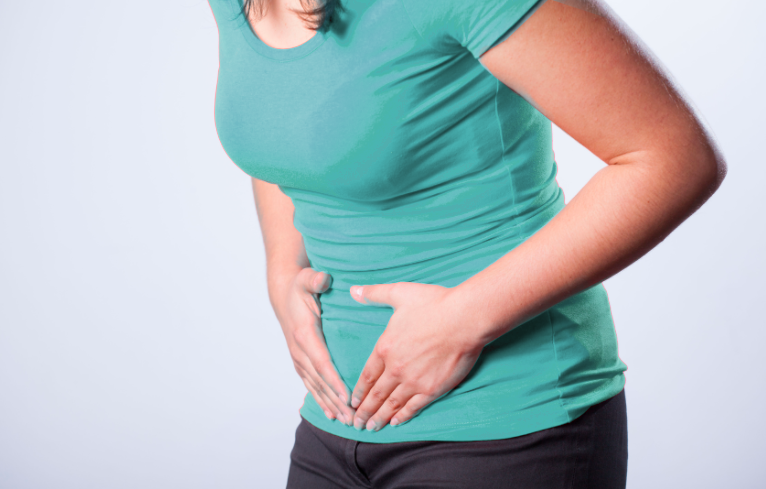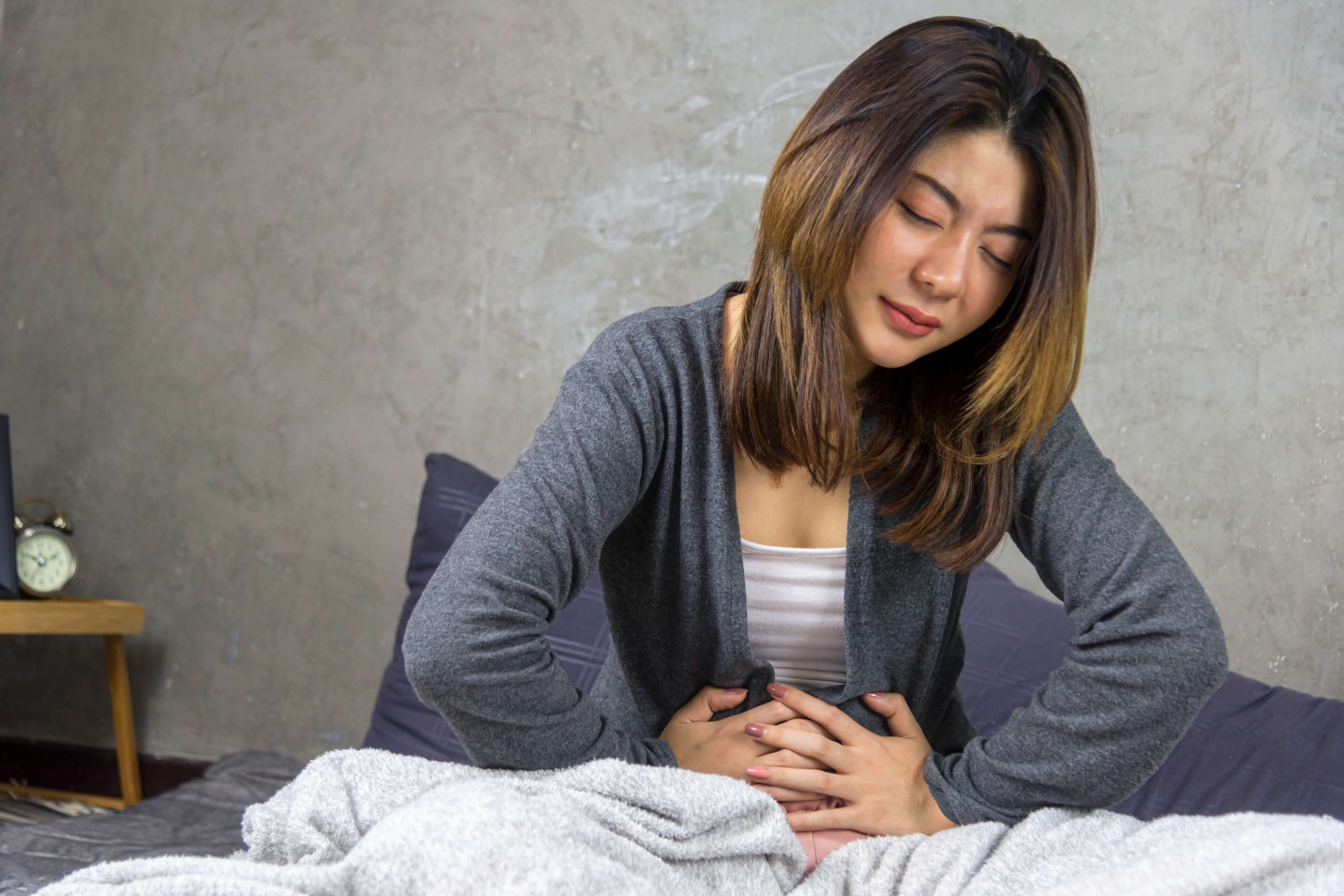Women's Health
Abnormal Period Pain: Warning Signs You Should Not Ignore
Medically reviewed by Dr. Cindy Pang

You might have that one friend who is blessed enough to never experience any pain during their period, nonetheless, people in this category are typically in the minority. Most women experience painful cramps lasting for one to two days during the start of their period.
However, if you experience extremely painful cramps that severely impact your daily life, this may be an indication of more serious problems such as endometriosis, pelvic inflammatory disease or fibroids.
Endometriosis occurs when the womb lining is deposited outside of the womb cavity such as the fallopian tube and ovaries, which can become inflamed and cause infertility and severe period pains. The lining can also migrate into the muscle layer of the womb, causing the womb to swell in a condition known as adenomyosis.
Endometriosis affects 10–15% of all women of reproductive age and is found in up to 70% of women with chronic pelvic pain.
Pelvic inflammatory disease occurs when infection causes swelling of the internal pelvic organs – the fallopian tubes, ovaries and womb. This can lead to fever, pain and pus-like discharge. This infection is usually from sexually transmitted diseases, but can sometimes be from bacteria which has migrated from the intestinal tract. The consequences of such infection can be long term pain, subfertility and increased risk of ectopic pregnancy.
Fibroids are found in up to 40-50% of women. These are muscle growth within the myometrium (muscle lining ) of the womb. A small proportion of these women may have larger fibroids or those compressing on the surrounding organs causing pain. Other problems associated with fibroids include heavy menses, subfertility and increased risk of miscarriage.
Warning Signs Your Period Pain May Be Abnormal
Here are some warning signs that your period pain isn’t normal.
Severe Pain That Disrupts Your Normal Life
If you regularly need to stay home from work due to severe pain, this may be an indication of abnormal period pain. While it’s not rare to experience pain so bad that you have to call in sick for work, there might be a more serious underlying condition if you’re consistently experiencing this amount of pain.
Random Pelvic Pain
Pelvic pain during sex is not normal and severe period pain can be caused by the same conditions that lead to pain during sex.
If you experience pelvic pain even when you’re not ovulating or when you’re not close to your period, this may also be an issue.
Cramps That Last More Than 2 To 3 Days
Period pain that lasts throughout the entire duration of your period is not normal. It also shouldn’t start too many days before your period, as period pain typically starts the day before, or on the first day of your period.
Pain Medications Are Ineffective
Pain medications, especially the non-steroidal anti-inflammatory drugs (NSAIDs), are usually effective in helping most women relieve their period pain. However, if you find that pain medications are not helping you to relieve the pain at all, that may be a sign that you are experiencing abnormal period pain.
Periods With Heavy Bleeding That Last For More Than 7 Days
If your painful periods are accompanied by heavy bleeding to the point where you’re changing your pad every two hours, or if your period lasts more than 7 days, this can signify a more serious medical condition.
Excessive bleeding may also result in iron deficiency or anaemia. With anaemia, the heart must work harder to carry oxygen to the rest of the body – this extra work can harm the heart and cause symptoms like severe fatigue, palpitations, fainting spells.
Periods With Nausea, Bowel Problems Or Urinary Problems
It’s normal to experience some diarrhoea or an upset stomach during your period because the uterus releases a hormone called prostaglandins.
However, severe diarrhoea, painful bowel movements, vomiting, nausea or urinary problems along with abnormal period pain may warrant a visit to the doctor.
Unusual Discharge Or Spotting Between Periods
Vaginal bleeding or discharge between your periods may indicate more severe medical conditions, especially if they are accompanied by unusual period pain.
This may be a sign of pelvic inflammatory disease, endometriosis, hormonal changes, cervical cysts, benign uterine cysts or even cervical cancer.
Latest Articles
How Are Abdominal Hernias Treated?
What to Expect from Colorectal Surgery
How to Treat Breast Inflammatory Conditions
Gynaecomastia: Understanding Male Breast Cancer
When To Seek Medical Help
You should see a doctor if you experience any of the warning signs above. Don’t be afraid to voice out your concerns as doctors have the right expertise to correctly point out the cause of your abnormal period pain. Furthermore, it’s better to detect any potential issues early, when they are easier to treat.
Early treatment for conditions such as fibroids, pelvic inflammatory disease or endometriosis can ease your pain and increase your chances of getting pregnant if you plan on having a baby.
Your doctor will usually hear you out and perform a thorough checkup for you to investigate the cause of your abnormal period pain. Severe pain can be caused by a variety of medical conditions including ovarian cysts, fibroids, endometriosis, pelvic inflammatory disease, adhesions or cervical stenosis.
Conclusion
Painful periods which disrupt your daily function is not normal. Abnormal period pain that is accompanied by unusual symptoms may indicate a more severe underlying medical condition. Diagnosis and early treatment are crucial to prevent long term consequences such as chronic pelvic pain or subfertility.
It is best to seek professional advice from a doctor if you experience any of these warning signs to treat any potential medical conditions early.
WHO WE ARE
About SOG Health Pte. Ltd.
Established in 2011, SOG Health Pte. Ltd. (“SOG”) is a leading healthcare service provider dedicated to delivering holistic health and wellness services to the modern family.
With a long and established track record in Singapore providing Obstetrics and Gynaecology (“O&G”) services such as pre-pregnancy counselling, delivery, pregnancy and post-delivery care, the Group has since further expanded its spectrum of healthcare services to include Paediatrics, Dermatology, and Cancer-related General Surgery (Colorectal, Breast & Thyroid).
The Group’s clinics, under its four operating segments of O&G, Paediatrics, Oncology and Dermatology, are strategically located throughout Singapore to provide easy access to its patients.
- Obstetrics
- Gynaecology
- GynaeOncology
- Breast, Thyroid & General Surgery
- Colorectal, Endoscopy & General Surgery
- Dermatology
- Paediatrics
Consult With A Specialist From SOG
Visit one of our specialists today to learn more about your health!
Recommended Specialists
Book An Appointment
Fill up this form and our clinic will get back to you shortly.
For general enquiries, please click here.






